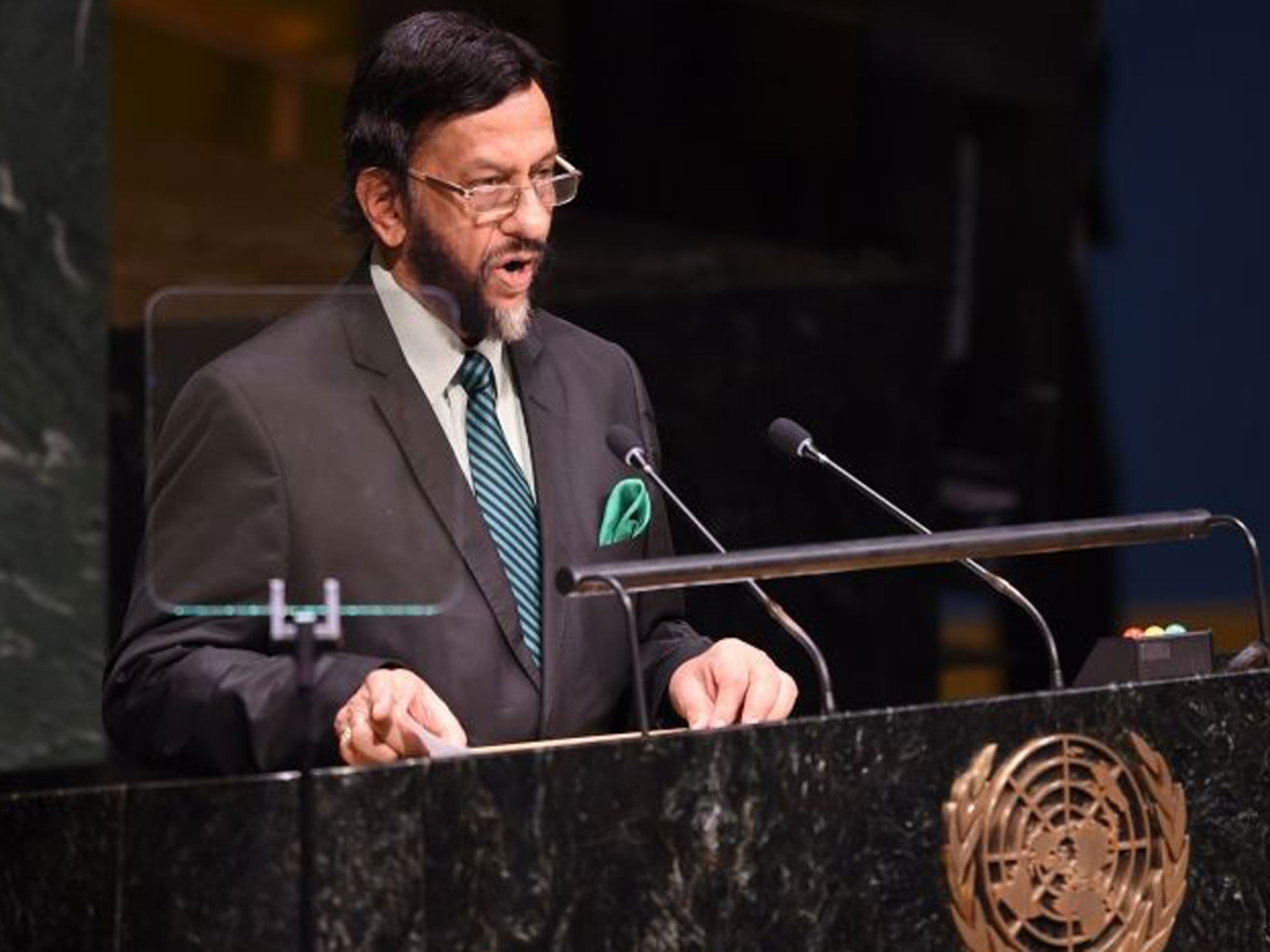Global climate change expert 'optimistic' that world can curb global warming
New York declaration signed by 50 governments

The world has reached a tipping point in the battle to curb climate change during the past few days, with public awareness of the dangers of global warming and the political will to address them rapidly gathering momentum, the world’s top climate expert has said.
Dr Rajendra Pachauri, the chairman of the UN Intergovernmental Panel on Climate Change (IPCC), said he was optimistic that this “heightened awareness” would lead to crucial action to avoid the most devastating impacts of global warming.
But he warned there was still much work to do and that it remained to be seen whether world leaders could agree an effective deal to curb emissions at a crucial UN meeting in Paris in December next year.
Dr Pachauri was speaking after addressing the biggest gathering of world leaders – 125, including David Cameron and President Obama – ever assembled to discuss climate change, in New York today. This UN summit came hard on the heels of more than 2,700 climate change marches in 161 countries over the weekend.
“I see a clearly heightened awareness of climate change and what that means for people’s livelihoods around the world. The marches were quite unprecedented, as is this high-level summit. It could very well be a turning point – I am optimistic that from now onwards we will see global society moving towards a solution,” Dr Pachauri told The Independent.
“It’s very difficult to predict what happens next because these things are so complex but the signs look encouraging and I would be surprised if we didn’t get a good agreement at Paris,” he added.
The battle to curb climate change took a major step forward at the UN conference, as global leaders pledged dramatic action to eliminate deforestation.
Ed Davey, the Liberal Democrat Energy and Climate Change Secretary, also agreed that the world seems to have reached a tipping point in the battle against climate change.
“The marches have been an important part of that,” he said. “We are at a really critical moment. I am more optimistic than I have been before, we are absolutely in a better place than we’ve been before."
The so-called New York Declaration – signed by 50 governments and sub-governments around the world, including the UK and the US – promises to cut the rate of deforestation in half by 2020 and to halt it altogether 10 years later. Over the same period, an area of dilapidated forestland bigger than India will be restored, meaning that towards 2030 the number of trees in the world will actually be increasing.
UN Secretary-General Ban Ki-moon, who convened the summit, said: “I asked for countries and companies to build bold pledges, and here they are. The New York declaration aims to reduce more climate pollution each year than the United States emits annually.”
“This is a serious commitment for a serious challenge,” added Heru Prasetyo, head of Indonesia’s REDD+ Agency, which is concerned with reducing emissions from deforestation and forest degradation.
If successful, the move will reduce global emissions by between 4.5 and 8.8bn tonnes of carbon dioxide a year – about 15 per cent of the 40bn tonnes forecast to be emitted this year. It is also the equivalent of removing the world’s 1bn cars from the roads.
The UN also announced a new initiative to accelerate the transition to more efficient appliances and equipment to reduce energy demand. A worldwide shift to energy-efficient appliances and equipment – including lighting, air conditioners, refrigerators, electric motors and ceiling fans – would reduce global electricity consumption by more than 10 per cent, saving $350bn annually in electricity bills and reducing global emissions by 1.25bn tonnes a year.
Subscribe to Independent Premium to bookmark this article
Want to bookmark your favourite articles and stories to read or reference later? Start your Independent Premium subscription today.

Join our commenting forum
Join thought-provoking conversations, follow other Independent readers and see their replies